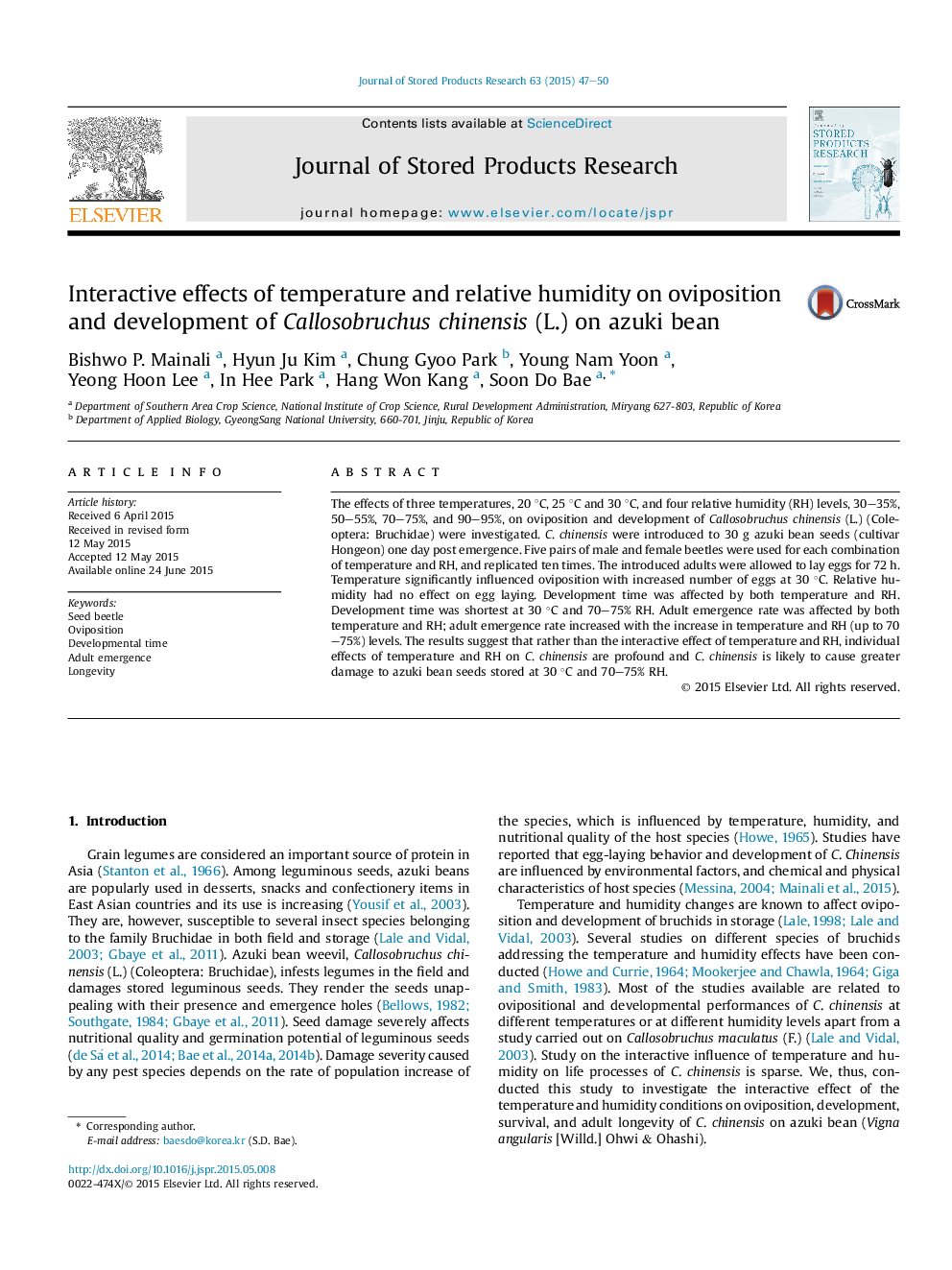| کد مقاله | کد نشریه | سال انتشار | مقاله انگلیسی | نسخه تمام متن |
|---|---|---|---|---|
| 4517030 | 1624925 | 2015 | 4 صفحه PDF | دانلود رایگان |

• Effects of 3 temperatures and 4 relative humidity levels on oviposition and development of C. chinensis was investigated.
• Temperature significantly influenced on oviposition; relative humidity, however, had no effect on egg laying.
• Development time and adult emergence rate was affected by both temperature and relative humidity.
• C. chinensis is likely to cause greater damage to azuki bean seeds stored at 30 °C and 70–75% RH.
The effects of three temperatures, 20 °C, 25 °C and 30 °C, and four relative humidity (RH) levels, 30–35%, 50–55%, 70–75%, and 90–95%, on oviposition and development of Callosobruchus chinensis (L.) (Coleoptera: Bruchidae) were investigated. C. chinensis were introduced to 30 g azuki bean seeds (cultivar Hongeon) one day post emergence. Five pairs of male and female beetles were used for each combination of temperature and RH, and replicated ten times. The introduced adults were allowed to lay eggs for 72 h. Temperature significantly influenced oviposition with increased number of eggs at 30 °C. Relative humidity had no effect on egg laying. Development time was affected by both temperature and RH. Development time was shortest at 30 °C and 70–75% RH. Adult emergence rate was affected by both temperature and RH; adult emergence rate increased with the increase in temperature and RH (up to 70–75%) levels. The results suggest that rather than the interactive effect of temperature and RH, individual effects of temperature and RH on C. chinensis are profound and C. chinensis is likely to cause greater damage to azuki bean seeds stored at 30 °C and 70–75% RH.
Journal: Journal of Stored Products Research - Volume 63, July 2015, Pages 47–50